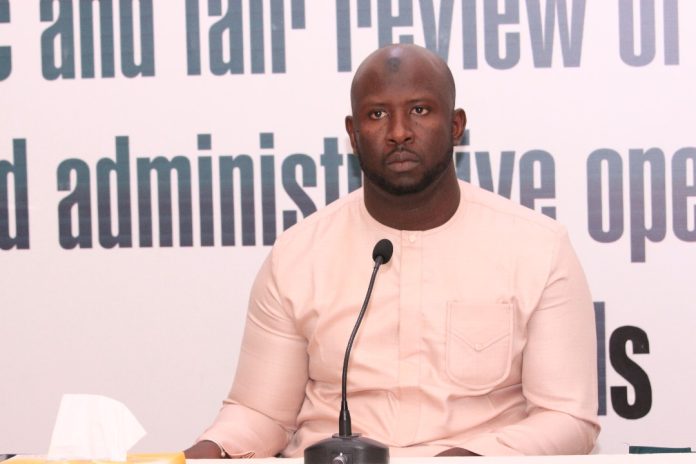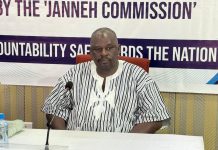By Yankuba Jallow
Pa Modou Ndow, Acting License Manager of the Banjul City Council (BCC), returned to the witness stand before the Local Government Commission of Inquiry and once again struggled to account for millions of dalasis deposited into his personal bank account while managing trade license revenue on behalf of the council.
Ndow, who first testified in March 2025, faced renewed questions from Lead Counsel Patrick Gomez, who pressed him on inconsistencies and lack of documentation related to the inflows into his Eco Bank account. Although Ndow has previously attributed the deposits to remittances from his sister abroad and vague “side hustles,” he admitted this week that the funds he received do not align with the details of the remittances he submitted.
“You cannot justify these deposits,” Gomez stated bluntly, referring to the account records already admitted into evidence. Ndow agreed but shifted his defense, saying: “I don’t handle cash.”
But Counsel Gomez challenged the claim, pointing out that Ndow oversaw billing, issued invoices, and decided how much each business was to be charged. “You dictate the payments and the mode of payments. You do the evaluation and issue the invoices,” Gomez said.
Ndow confirmed that he and Makumba Sanneh, adviser to the BCC Mayor, jointly determined how tailoring shops were billed — a process based on the number and types of machines. He later conceded that only he and Sanneh had the authority to set these amounts.
“That is the mode of operation we found at the BCC,” Ndow said.
“That mode of payment will only enrich you people,” Gomez retorted.
“No, no,” Ndow replied, denying the accusation.
Despite earning a salary of D13,000 to D14,000 — later increased to D20,000 in 2024 — Ndow’s account statements reflect deposits far exceeding his declared income. Gomez noted that even at D50,000 per month, the deposits would remain unjustifiable. Ndow maintained that he does not live lavishly, but Gomez countered: “The transactions in your account say otherwise.”
In March, the Commission detailed D4.7 million in deposits made into Ndow’s account between 2020 and 2023, including multiple six-figure sums deposited during peak trade license collection periods. Chairperson Jainaba Bah then demanded that Ndow produce evidence justifying the source of funds. Months later, he has still failed to present any documentation.
Gomez highlighted the striking alignment between the dates of the largest deposits and the BCC’s peak trade license season. “Is it a coincidence?” he asked.
“Of course,” Ndow responded.
But further analysis by Gomez showed inconsistencies between the dates of remittance receipts and actual bank deposits, including deposits from Mbacke Finance. “All these monies were from the revenue of the council. These were suspicious, fraudulent financial transactions,” Gomez charged.
Ndow admitted that he and Sanneh exercised wide discretion in deciding how businesses were assessed and billed. He had previously acknowledged that while fees should be guided by the gazetted rates, many businesses were charged based on internal “management decisions.” For example, chicken and livestock dealers were billed daily rather than annually, generating more revenue but defying the official guidelines.
In his March testimony, Ndow also admitted that many contractors were not paying the required license fees per contract, as mandated. Instead, they were charged a single flat rate annually, regardless of how many contracts they executed.
His role in assigning fees — without expert assessments — and the untraceable funds moving through his personal account have continued to raise red flags for the Commission.
Ndow previously disclosed ownership of two plots of land (one purchased in Jambajelly, another inherited in Banjul) and a 2015 Nissan Pathfinder, but the Commission remains focused on whether such assets and lifestyle match his declared income.
He now proposes that councils and the Gambia Revenue Authority (GRA) collaborate more closely to ensure businesses clear local taxes before receiving GRA clearance. He argued this could improve compliance and transparency.
Still, the Commission remains unsatisfied with his explanations. His failure to produce remittance documents or credible justification for millions in personal bank deposits has further intensified concerns over financial mismanagement at BCC. He is given 24 hours as the last chance to bring his claim remittances received.
The inquiry continues.



















